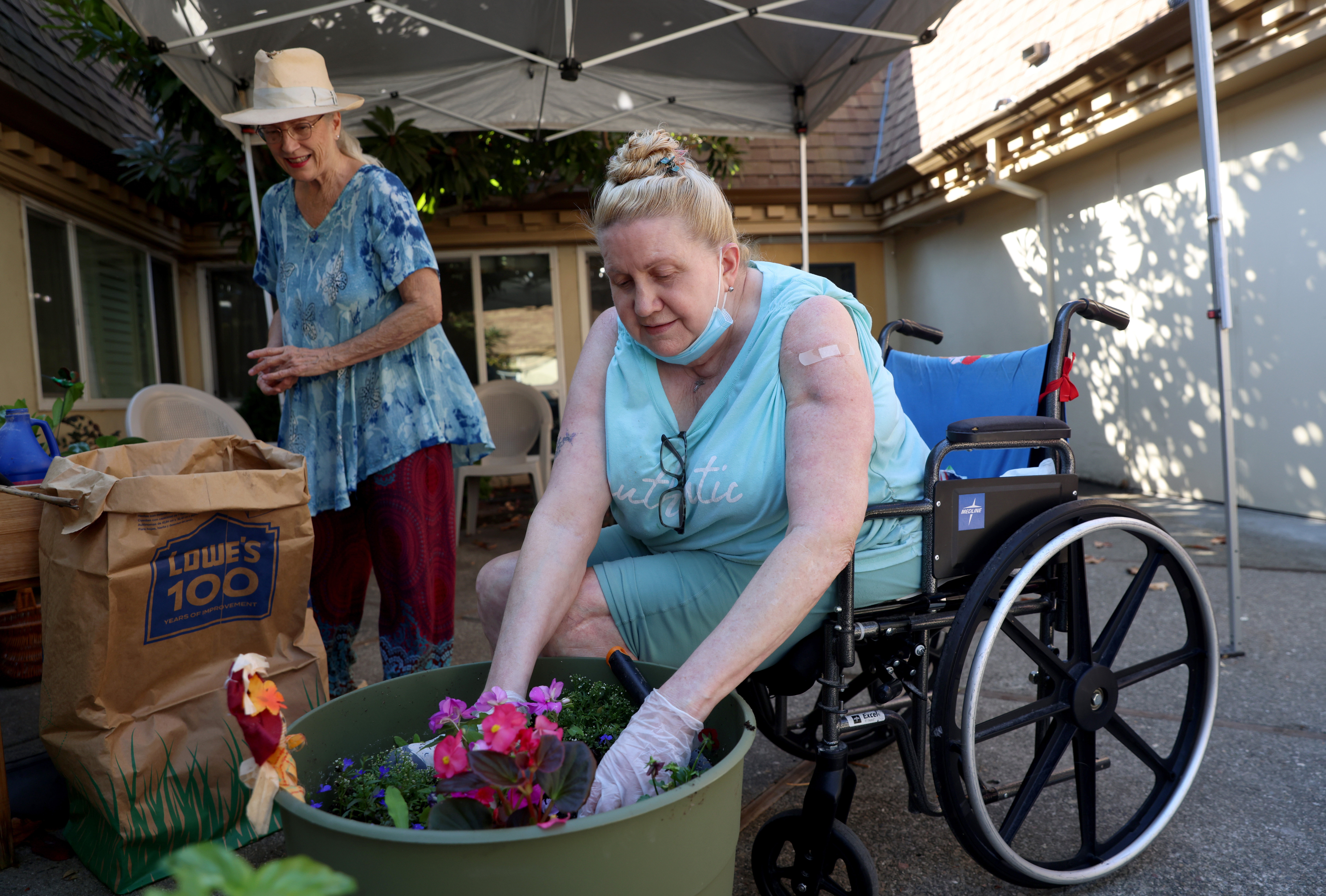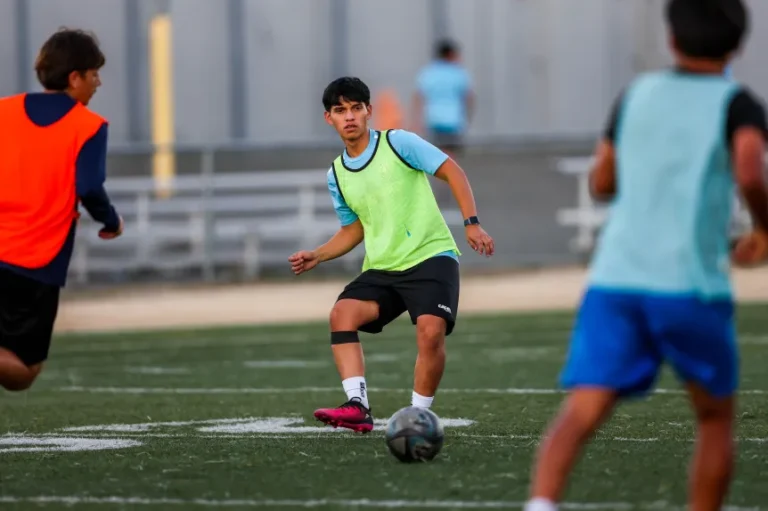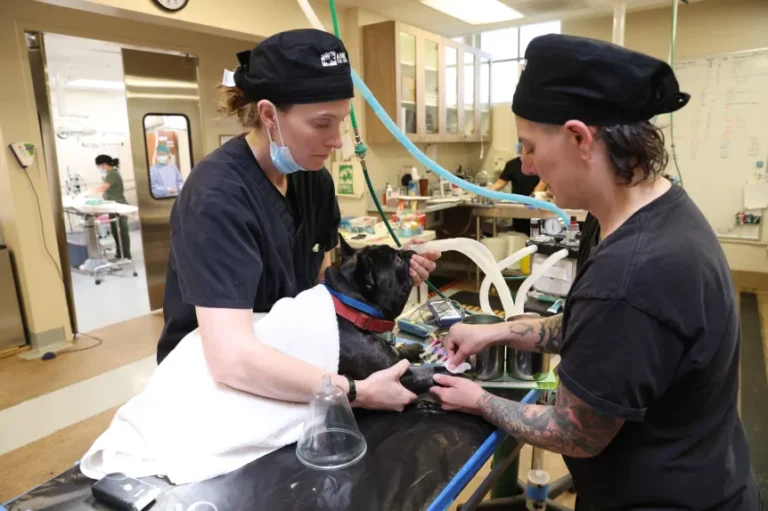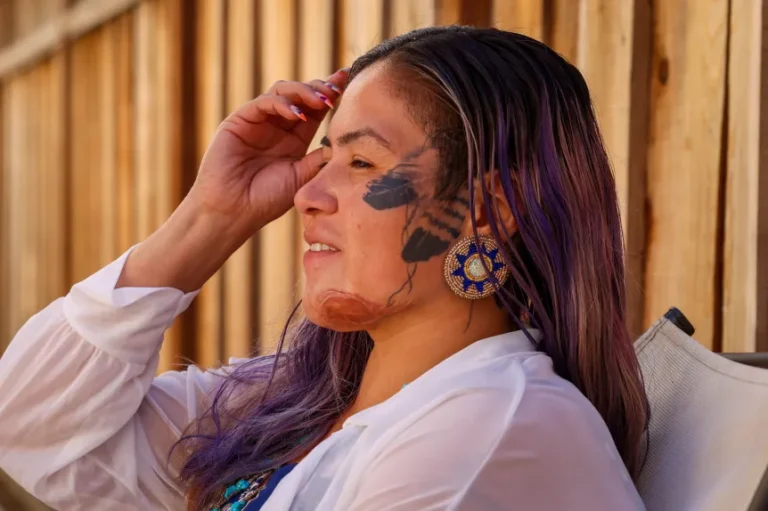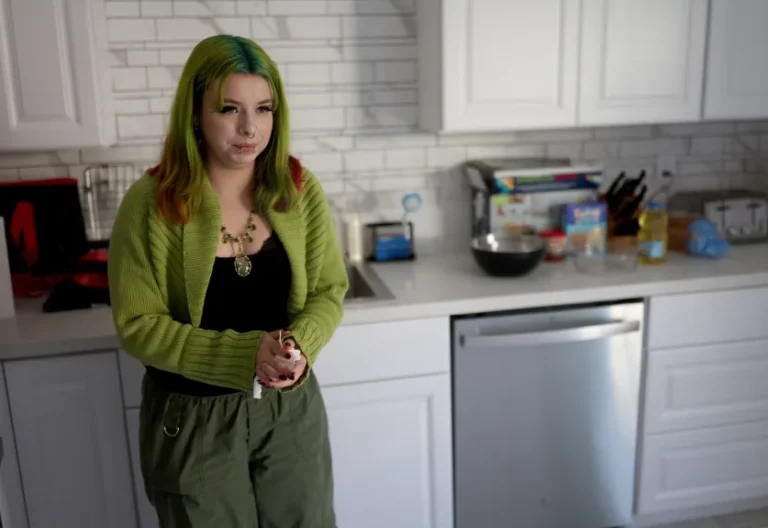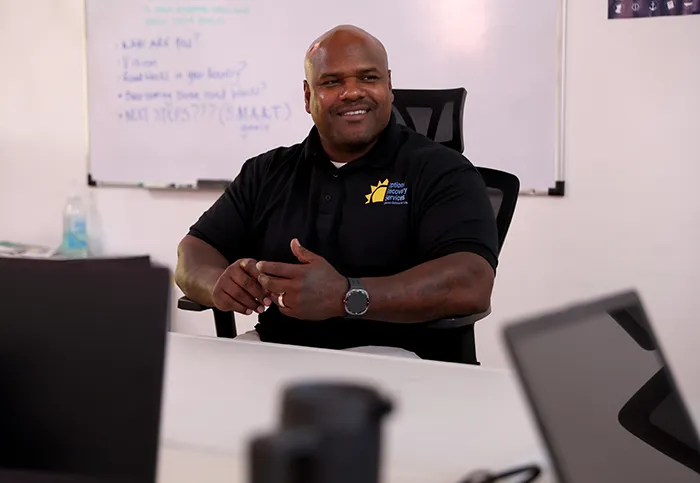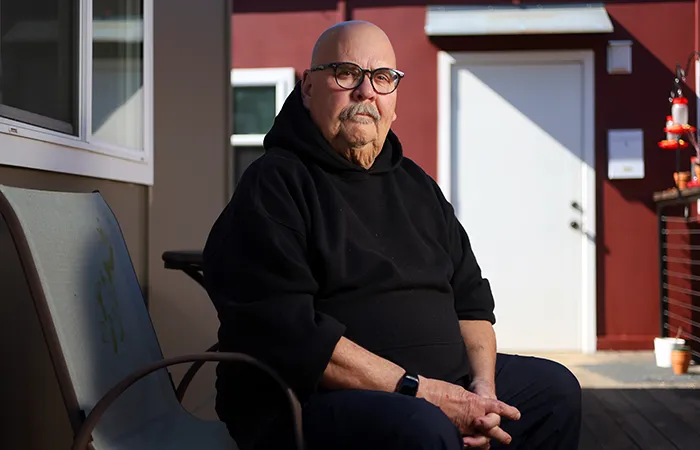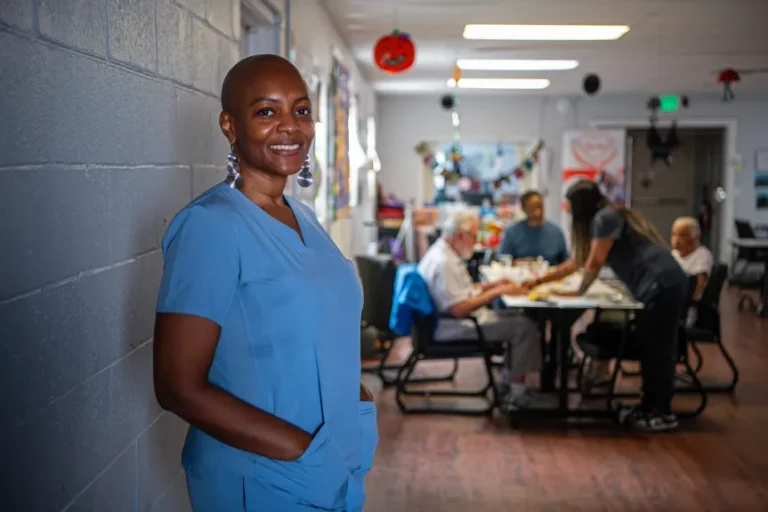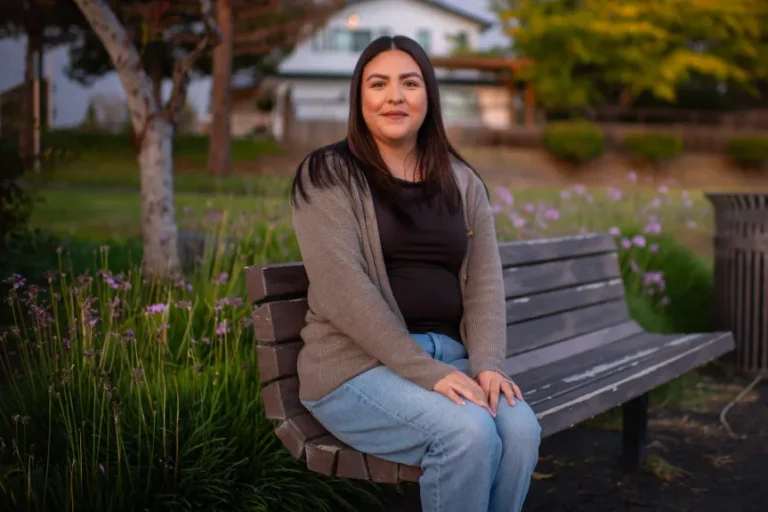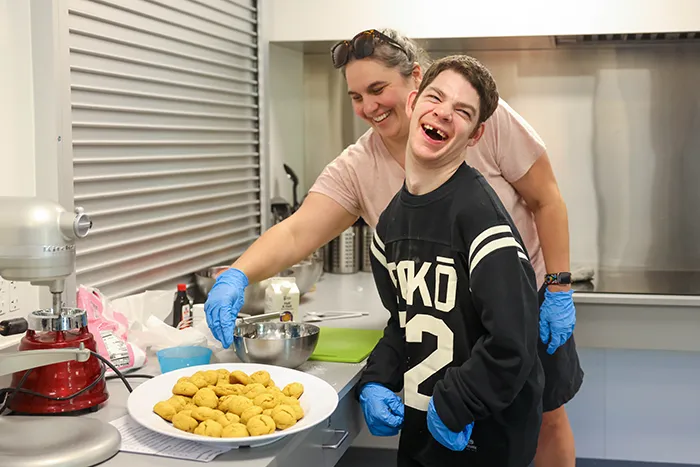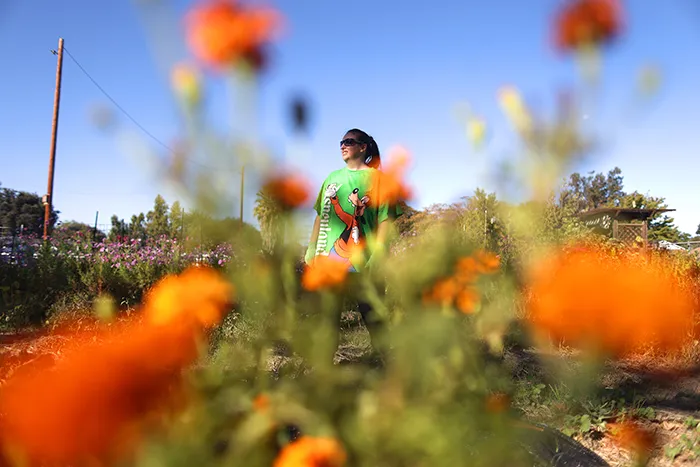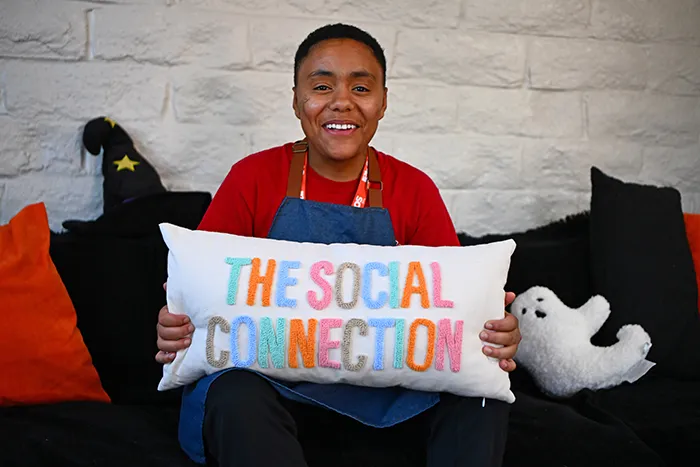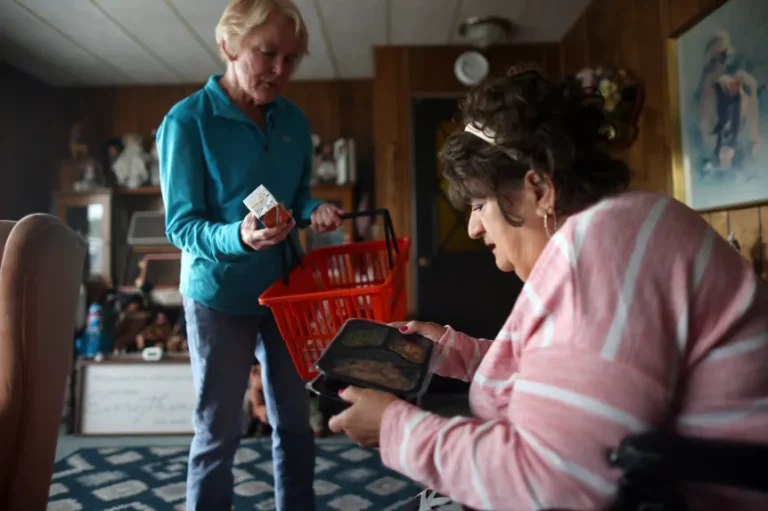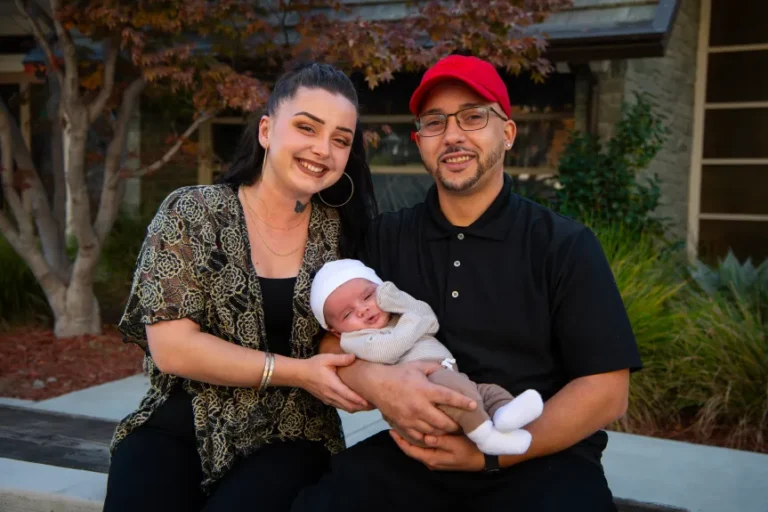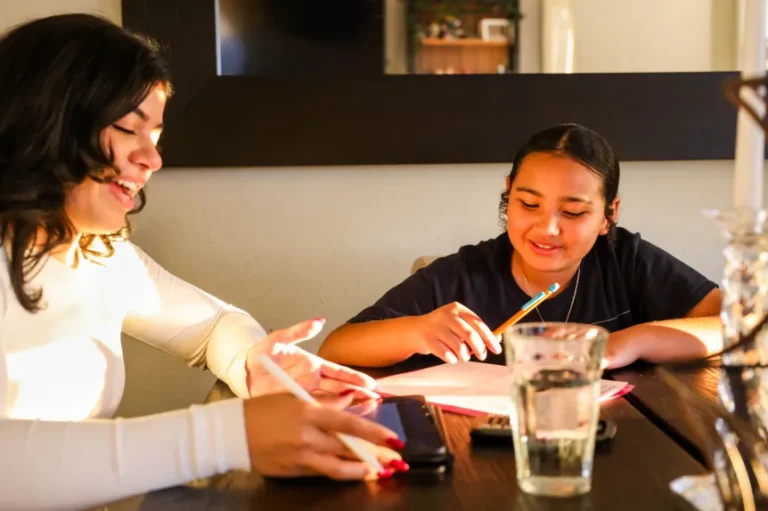Walk inside the Bayberry Skilled Nursing and Healthcare Center and it looks and feels like any other nursing home.
There’s a temperature check, a sign-in desk, a corkboard with activities and a handful of residents hanging out in the nearby dining room. It’s mostly quiet, aside from the television and some murmured conversations.
But walk through the dining room, push open the exit door and there’s a whole new world outside.
In a small courtyard, covered in warm sunlight, a handful of residents are laughing, talking and focused on their very important job: maintaining a vibrant garden full of flowers and strawberries, cherry tomatoes and bell peppers, and an array of other potted plants.
Lynn Jaeger, 64, walks over to one of the plants, plucks a fresh basil leaf off and hands it to a visitor.
“This is our creation,” she says with a smile.

Bayberry activities director Isaac Silva spent a year trying to generate interest among the residents before the garden was finally started in January.
“We had a very negative outcome from the pandemic where a lot of our residents were being in their rooms a lot, procrastinating, not very social like they once were,” Silva said. “Finding that balance of not pressuring them too much and just nudging them towards that direction of getting to a communal setting, that’s the challenging part more than anything.”
Victoria Ryan, the executive director of a nonprofit organization called LITA of Contra Costa, reached out to Silva with the idea last year.

Ryan, once a musician who says she toured with Cat Stevens and opened for James Taylor and Herbie Hancock now spends much of her time providing exciting activities to nursing homes just like the one at Bayberry, where her father lived 20 years ago. LITA’s volunteers improve the quality of life for seniors and people with disabilities who live full time in skilled nursing homes or memory care facilities through art, gardening, music and more.
“When people have a reason to get up and get out of bed, they will,” she said.
Erich Lichthardt, 55, suffered a massive stroke five years ago and found himself at Bayberry. He has no memory of being there for the first month and a half. He rarely got out of bed. But Silva, the activities director, kept pushing him to get involved in something, anything, to give Lichthardt a sense of community.

Lichthardt remembers the first time he felt alive again.
Silva wheeled him down to the community room for movie night. Lichthardt had worked at a movie theater as a young kid growing up in Alaska. The smell of popcorn was like a bolt of electricity through his body. But without function on his left side, Lichthardt couldn’t hold the popcorn box. He spilled it on the floor and began to cry.
“Isaac brought me another box of popcorn,” Lichthardt said. “I felt much better.”
That was the moment he started talking again.
Knowing how much Lichthardt liked movies, Ryan found funding through LITA to purchase tablets that she could distribute to residents. Now they can watch TV shows and movies on their own devices. And eventually, after a year of trying to get it approved, Ryan was able to start a garden in the Bayberry courtyard.

In January, Ryan showed up to Bayberry with huge pots, bags upon bags of soil and gardening supplies for the residents to begin planting.
“This really helped our residents emotionally, to give them a sense of community to bring them together,” Silva said. “That’s what the garden club is all about.”
Ryan hopes to raise $9,000 for LITA through the East Bay Times’ annual Share the Spirit campaign that highlights nonprofits providing a helping hand to our most vulnerable residents. The funds would maintain gardens in three different nursing centers and build a new garden in a fourth. The funding will also help supply more tablets and personal electronics for residents to enjoy movies and music.
Ryan had done this in three other facilities previously and knew the impact it could have.
“On gardening days, I know we’re anxiously looking at the front door waiting for Victoria because we know something great is going to happen again,” Jaeger said. “She’s really conscious of our well being. She brought us our wonderful anti-sun hats. All of Victoria’s great knowledge and cheerfulness is why we love it.”

Jaeger has done most of the work. A former school teacher and a mother of two, she is trying to regain strength after her brain injury. The garden keeps her going.
“I was more sedentary,” she said. “But I’ve gotten a lot more active since then. I love putting my hands in the dirt and I talk to the plants and say, ‘hey guys, keep going, c’mon.’”
Without function in half his body, Lichthardt can’t participate in gardening. But on gardening days, he gets out of bed at 10:30 a.m. instead of noon, and exits his dark room (he keeps the shades shut because he likes the dark) and forces himself to get some sun.
“I can come outside when I want to, but now there’s a reason,” he said.
Said Ryan, “He really considers Isaac a savior because Issac didn’t give up on him. Because a person can have a stroke and stay in their room and nobody pays attention to them. But Issac took him on as a project, wheeled him out and he came out to please Issac. And then he liked it. He likes visiting.”

Lichthardt is the cheerleader of the group. Jaeger is the worker. Lillia Alvarez, 69, was out there most days, too, before she sadly passed away in November. She had been recovering from two strokes and didn’t say much, but her warm presence and positive attitude added to the dynamic.
“I like the cheerful energy that transpires between the people,” Jaeger said. “And I feel productive working in the soil and nursing the plants with the water, talking to them. It is peaceful.”
Watching the residents find purpose in keeping the garden alive has given Ryan purpose, too. And she’s also looking for new volunteers to help teach residents how to maintain the gardens.
“The garden is a vehicle for spending time with people who can’t get out and make friends,” Ryan said. “I really think people who know how to make their own hope, they’re happy all their lives.”
